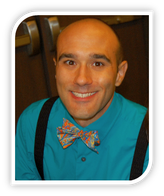When we think about what a new professional degree, delivered at the Master’s level, should look like, we have a responsibility to consider alternative pedagogical theories. These practices might include:
1. Clinical immersion – Most of the recent literature has discussed our issues with transition to practice, and some consider the lack of clinical immersion may be one of many culprits. Immersing our students in structured and supervised clinical practice will likely be less challenging with this change.
2. Measuring quality clinical experiences through patient encounters – In Athletic Training, even after educational reform, some programs continue to measure the quality of clinical experience through the number of hours spent on site. To the contrary belief of some preceptors, time itself is no measure of the quality of experiences when students fail to have patient interactions focused on proficiency areas. Broader perspectives on how to create and replicate clinical experiences through measuring patient interactions may be a better way of quantifying these encounters.
3. Standardized patients and simulations – Although some current literature suggests at least a third of professional programs are using standardized patients and simulations within their programs, it seems that clear understanding of these concepts is lacking. Medical and health professions have long used compensated and trained standardized patients to provide both formative and summative assessment to help students grow and measure competence.
4. Distance learning – With advancements in technology, distance delivery can effectively engage students in coursework and with one another. Considering clinical assignments at a distance, while still engaging students in professional courses, is one way to diversify clinical experiences beyond the typical traditional settings and the offerings you may have within your community.
5. Self-directed learning – It is possible to help students better guide their learning through appropriate self-reflection and critical analysis. Reflective learners are more often self-directed due to previous academic and personal experiences, a likely byproduct when we #ELEVATE the degree.
6. Curricular and instructional creativity – Program faculty and administrators should consider a variety of course delivery modes as well as course sequencing as they #ELEVATE their programs. While commitment (both time and effort) to degree content has always been in competition with other demands of a baccalaureate degree, we now face an open canvas to paint the perfect picture of what the degree could look like at each of our own institutions.
To #ELEVATE means to embrace institutional autonomy now more than ever, highlighting our own strengths, unique experiences, and vision for the future. When we #ELEVATE our education, we #ELEVATE our clinicians; when we #ELEVATE our clinicians we #ELEVATE patient care; when we #ELEVATE patient care we improve patient outcomes; and when we improve patient outcomes we #ELEVATE the Profession.
-Lindsey E. Eberman PhD, LAT, ATC
-Kenneth E. Games PhD, LAT, ATC
-Jessica Edler MS, LAT, ATC

 RSS Feed
RSS Feed
